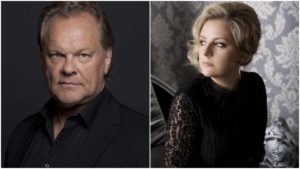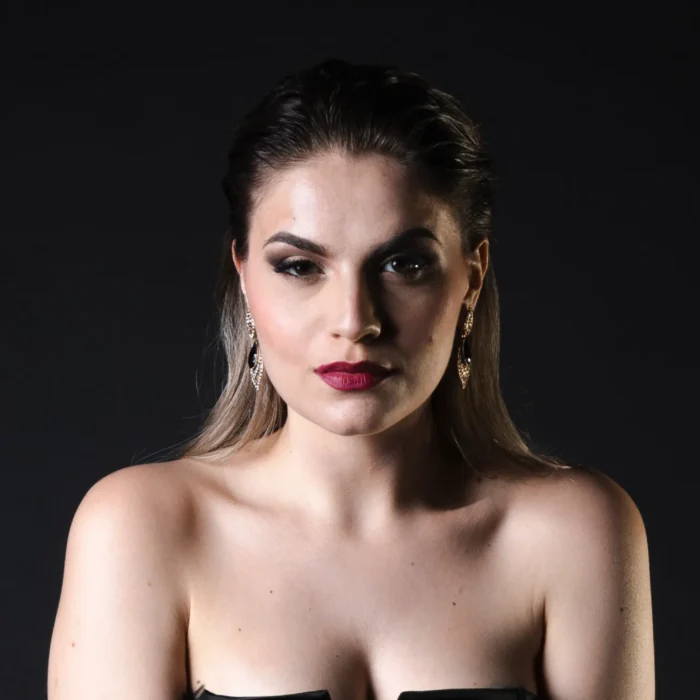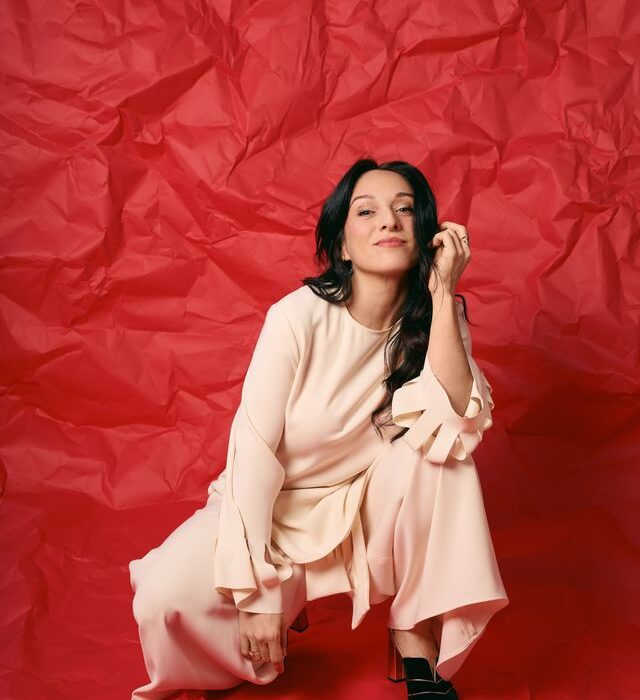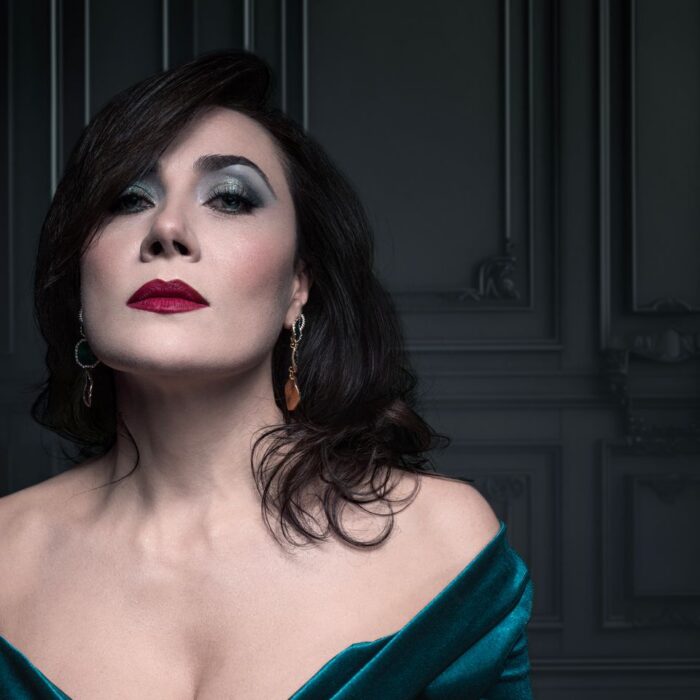
Q & A: Michael Volle & Gabriela Scherer on their Return to the Stage in Wiesbaden
By Francisco SalazarOn May 18, the Staatstheater Wiesbaden opened its doors after a nearly two month lockdown in Germany. The theater re-imagined its May Festival and programmed recitals and semi-staged selections of operas.
For the concerts, the theater was able to engage some of the world’s greatest soloists including real-life couple, Michael Volle and Gabriela Scherer. Originally scheduled to perform in the festival in Wagner’s “Der Fliegende Holländer,” the couple agreed to perform excerpts from the opera as well as excerpts from R. Strauss’ “Arabella.”
OperaWire spoke with both Volle and Scherer about returning to the stage and the experience of performing under new conditions.
OperaWire: Staatstheater Wiesbaden had originally canceled their May Festival. At what point did they start talking to you about the possibility of doing a revised festival? What did you feel when they decided to go ahead with this plan knowing you two would be back on stage?
Michael Volle: Weeks ago we both had an idea while having breakfast to suggest going to Wiesbaden and doing excerpts from “Der Fliegende Holländer” and “Arabella” to be recorded and streamed.
Gabriela Scherer: It was highly welcomed. I think at the same time director, Uwe Eric Laufenberg and his team developed the current program. When we got the news that we’d be on stage again we were filled with happiness and excitement about the possibility.
OW: Gabriela, you mentioned that you were excited to sing “Der Fliegende Holländer” alongside Michael on Instagram and that this production was something you had desired to do for so many years. How do you feel being able to perform selections from “Holländer” in this semi-staged version?
GS: To be honest, I am very sad. I love to sing with my husband in a concert and we do this periodically. We have performed duets and arias and it is wonderful to work with him. But I wanted him to be my “Holländer” on stage with the whole story, the complete staging, the colleagues and the orchestra. When he entered the stage for the duet after my Ballad, I almost cried because I realized how magical it would have been in the real scene with a full production. But we hope to do this together on stage sometime in the future. I don’t know where and when, but it has to happen. I want this incredible man and singer to be my Holländer.
OW: What kind of vocal routine did you develop while in quarantine?
MV/GS: We must confess that since the end of February our motivation during the lockdown was very low. We weren’t motivated to prepare new projects or warm up daily due to the uncertainty concerning the future. But eventually we felt the necessity to fight these negative feelings by singing, warming up, and doing some lessons with our pianist.
OW: Tell me about performing together and your process when rehearsing once you began preparing the repertory for this concert?
MV/GS: This concert was not the first time we have sung together. We have done “Arabella” together already and for this concert we did a session with a pianist. But in general we have similar ideas about phrasing, building up the lines, and tempi for these pieces so we don’t have to discuss a lot, we just do it. And that is absolutely great. That’s the best.
OW: What types of safety measures did the theater take? Was there anything out of the norm that you were not used to when returning to the theater?
MV/GS: No appearance in the theater now would have been allowed without all the common safety measures, for example social distancing with the pianist or wearing a mask. Obviously not while singing. And also, we both as a couple in real life, have already been very close to each other touching, hugging, and kissing!!!!!
OW: Returning to the stage must be something exhilarating for both of you as artists. What was it like to see a live audience for the first time in months? How did you feel stepping on stage for the first time since theaters were closed? Was it it odd to see audience members in masks and scattered throughout the stage?
MV: No question that it was a strange situation. But I was absolutely full of happiness about singing live again for the the first time after 11 weeks. It is a joy to do what we are able to, what we love and what we’ve missed so much. Feeling the audience, their concentrated attention and their love is very moving. But there is also frustration about this odd feeling, this distance to everything, this unnatural behavior by order of the law. It’s not pleasant. This can’t be the future of opera. It was a hopeful start and of course it is better than nothing.
GS: Well-to be honest, I just wanted to cry. When I came on stage and I saw that amazing ship, I just wanted to cry. I did this production in February in Wiesbaden and I LOVED it; The staging, my colleagues and our great conductor. It was such wonderful work and then we had to stop after just a few performances. It was so sad! I was supposed to sing many Sentas this season also with other opera companies and I was looking forward to it. It still hurts.
OW: Michael, you posted two pictures showing frustrations on how planes were full while the theater was half empty. That post was later shared by many artists. Tell me what was going through your mind seeing the disparity and points of view of where social distancing should be applied. How did you feel when your colleagues shared the post and also shared similar ideas?
MV: You feel betrayed. There are completely different standards and that’s not only unfair but also dangerous because people get tired of the orders and the reason for the safety measures. We know culture is always the last to be considered and there is no doubt misery, pain and terrible fates everywhere. But we as members of the performing arts are also important for the health of our society. The more we voice these problems, the higher the chance that these things can start to change.
OW: After these Wiesbaden performances, do you anticipate the way certain operas are performed will change and will it affect the repertoire company’s choose?
MV/GS: If rules don’t change we cannot perform classical repertoire that starts after Mozart. The orchestras would be too big and there would be too many people on stage. There are too many soloists, chorus members, and extras making it impossible to conform to current social distancing guidelines. We could do Baroque operas or versions with chamber ensembles. But that doesn’t last forever.
OW: How has this time changed the way you see your art form? What have you missed throughout this lockdown?
MV: Personally we want to be able to do opera like before, the classical way. But we don’t decide what will be allowed and possible. If there are changes in the way we perform and produce opera in the future, we’ll be part of it because we miss being on stage and doing live performances. The feelings of singing and performing on stage cannot be replicated. The Live Streams have been very precious and helpful to everybody but nothing replaces the feeling and the atmosphere of a live event.
GS: I missed working with colleagues, with orchestras, and being on stage. There is a different energy between the audience and the artists every evening and this is one of the most interesting things in our job. Being able to connect with the audience is not unlike a “lovestory,” so every evening is different and this is only possible to achieve LIVE.


